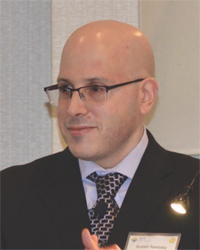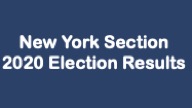
Home
About the New York Section
Section Officers & Committee Chairs
Section & Membership Info
Topical Groups & Committees:
Sub-Sections
| Brooklyn | |
| Hudson-Bergen | |
| Long Island | |
| Env Chem | |
| HS Awards | |
| Rockland | |
| Staten Island | |
| Westchester |
New York Section
| News | |
| Employment | |
| Awards | |
| Board | |
| By-Laws | Job Manual |
| Annual Reports (PDF) |
|
| 2018 Summary |
|
| 2017 Summary (3.1 MB) |
|
| (w/attachments, 175 MB) |
|
| 2016 Summary (4.7 MB) |
|
| 2015 Summary (6.8 MB) |
|
| 2014 Summary (3.3 MB) |
|
| 2013 Summary (3.5 MB) |
|
| 2012 Summary (31.1 MB) |
|
| 2011 Summary (59.5 MB) |
|
| 2010 Summary (14.4 MB) |
|
| 2009 (HTML) |
|
| 2008 (HTML) |
|
| 2007 (HTML) |
|
| Event Reporting Form (MS.docx) |
|
| Expense Form (MS.docx) |
|
| Expense Form (PDF) |
|
| Conflict of Interest Form (MS.docx) |
National ACS
| Homepage | |
| Careers | |
| Education | |
| Publications | |
| Meetings | |
| ACS Network | |
| Webinars |
|
| Webinars en Españoll |
Support Your Local Section
Interested in becoming a member of the ACS?
Click here.
American Chemical Society
New York Section, Inc.
Department of Chemistry
St. John's University
8000 Utopia Parkway
Jamaica, NY 11439
Phone 516-883-7510
Fax 516-883-4003
Office Administrator
Webmaster
|
William H. Nichols Distinguished Symposium, Medal Award Presentation & Dinner March 27, 2020 |
1903 - 2020 |
WINNER OF THE 114th NICHOLS MEDAL Krzysztof Matyjaszewski, Ph.D. |
honoring Krzysztof Matyjaszewski, Ph.D. Carnegie Mellon University Crowne Plaza Hotel White Plains, NY (Directions)
[
Dr. Matyjaszewski's Bio ] |
|
SYMPOSIUM “Nanostructured Polymers by Molecular Engineering Using ATRP”
Honoring
2020 Nichols Medalist Professor Krzysztof Matyjaszewski Center for Macromolecular Engineering Carnegie Mellon University 1:00 p.m. Welcome
1:05 p.m. Opening of the Distinguished Symposium
1:15 p.m. Polymer-Enhanced Biology
2:00 p.m. Responsive Materials from Dynamic Bonds
2:45 p.m. Dancing in the Dark with CHIPs: Polymers for Next Generation Photonics and Imaging
3:30 p.m. Coffee Break
3:45 p.m. Polymers, Cells and Spores: Macromolecular Engineering of Living Thin Films
4:45 p.m. Macromolecular Engineering by Taming Free Radicals using Atom Transfer Radical Polymerization
5:45 p.m. Social Hour
6:45 p.m.
William H. Nichols Medal Award Dinner |
|
Reservations for the 2020 William H. Nichols Distinguished Symposium & Medal Award Banquet |

Message from 2020 Chair
Dr. Ruben M. Savizky
2020 Board Meeting Dates

http://TheIndicator.org
Archive of Back Issues
Reminder - Please Pay Your New York Local Section Voluntary Dues!
When your ACS membership renewal notice arrives this time, please be sure to renew but also don't forget to check the box for payment of New York Local Section Dues. While Local Section dues are a voluntary contribution - they are not required to maintain Section membership - they are however, critically important to the well being of the New York Section.
Your $15.00 Voluntary Dues directly fund events and services, including the prestigious annual Nichols Medal Symposium, undergraduate research symposia, topical groups, subgroups, and other excellent programs. With your financial commitment, these important programs can continue to grow and benefit all our members.
Thank you - the New York Section really appreciates your help!
Employers Seeking Talented Employees
The Employment and Professional Relations Committee maintains a roster of candidates who are ACS members seeking a position in the New York metropolitan area. If you have job openings and would like qualified candidates to contact you, please send a brief job description and educational/experience background required to Hessy Taft. Candidates from our roster who meet the requirements you describe will be asked to contact you.
SPEAKERS WANTED
Do you like to talk?
Then we need to hear from you!
The New York Section of the ACS is looking to increase and update its Speakers Bureau database of interested local area speakers who are available for Section-wide seminars and symposia. If you have an area of research or interest that would provide an interesting talk appropriate for our Section members, and would like to be included in our Speakers Bureau, then please contact the New York Section Office (516-883-7510, Email) with the following information that will be posted on the Section's website: your name, affiliation, a title, and 5-6 words briefly summarizing your area of specialty. We look forward to hearing from you about topics that you wish to share with our other members!



